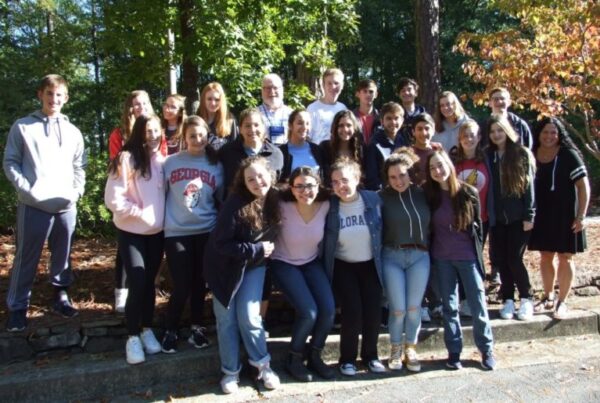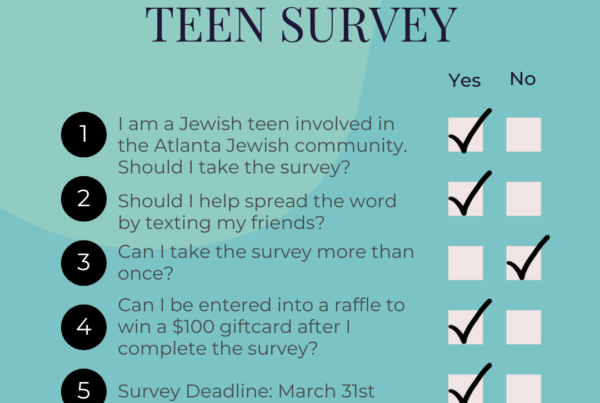In November, the Strong Women’s Fellowship had the opportunity to meet with the co-founders of the Jewish Democratic Women’s Salon, Valerie Habif and Joanie Shubin. They started their organization amidst the controversy from the Affordable Care Act in 2012. Together, they shared how that one issue sparked the formation of their group and how they utilized Facebook to gain members and popularize their group. They sought to form a political group in which progressive thoughts and ideas could be exchanged and to create an encouraging and accepting environment in which to do so.
Valerie and Joanie presented their story of growth in a very engaging way. They discussed the issues their group initially focused on, mainly the ACA, and explained the other problems they began to take on, such as gun violence and education. They helped us explore the depths of these issues, the importance of advocacy, and the capacity of their Jewish values. They explained that their group uses these values, such as Tikkun Olam (repair the world) and Kehillah (community), to navigate various political issues. The JDWS is comprised of hundreds of like-minded people who are passionate about enacting change in these areas and more.
Hearing about what the organization accomplishes and what its meetings involve have changed my essentially uninformed idea of what a political group entails. I now know that it is a very effective and mind-opening method of bringing about change on any scale.
One of the activities we partook in was generating our responsibilities as citizens. Of course, the obvious answer and the first that came to my mind was to vote; however, we listed a couple of others, but the critical job that was the last to be named was the responsibility to follow up with the people we elected into office. I did not realize how essential it is to hold those who earned our votes accountable for what they do and/or fail to do. I learned our representatives need to be actively striving to meet the needs of those they have been elected to represent, and most importantly, if they fail to do that, it is our civic duty to inform them.
Another discussion Valerie and Joanie led was one regarding ways of getting in contact with legislators. Although email is most convenient, this conversation truly enlightened me that writing a letter to my local politician would be more effective. Simply because these legislators receive fewer letters, they are more likely to prioritize them and take the time to resolve the matter voiced in said letter. The way to bring about the most change in one’s community is by contacting one’s local legislator, so I am happy to have learned that a letter will ensure my concerns are voiced and responded to.
The main takeaway I got from this meeting was that there are more things that I, a 16-year-old, can be doing to be politically involved in my community. I can advocate for the issues I am passionate about. I have attended a few marches, and I can continue to do so or even organize my own. I can follow politicians who believe in some of these same issues on social media and spread awareness on platforms such as Instagram. I can write to local politicians to urge them to vote on changing a policy or possibly vote on adding one. I also learned that I could register to vote this upcoming year, which I am incredibly excited about. Ultimately, this meeting with Valerie and Joanie has made me feel much more capable of my abilities as a young Jewish woman. They have prepared me with a valuable skill set to enter the political realm of my community successfully, and for that, I am very grateful.





